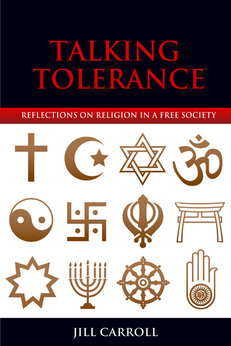The Four Noble Truths & The Eightfold Path
The heart of Buddhist teaching is found in the Four Noble Truths. These truths are what Siddhartha Gautama became enlightened about when he became the "buddha" or "enlightened one." These truths are shared by all the different groups, schools of thought and divisions within Buddhism.
The Four Noble Truths are:
1. the truth of suffering - life involves suffering or dissatisfaction. Even the most privileged lives involve suffering or dissatisfaction of some sort.
2. the truth of desire - suffering is caused by desire, specifically unenlightened desire
3. the truth of the cessation of desire - when unenlightened desire is ceased or eliminated from life, suffering ceases as well
4. the truth of the 8-fold path - desire is enlightened through right speech, right action, right livelihood, right effort, right mindfulness, right concentration, right understanding and right resolve
The Four Noble Truths support the common characterization of the Buddha as a doctor or healer. He assesses the life's condition, makes a diagnosis, and provides a prescription for the cure. Life involves suffering, even for those who lead privileged lives. Bad things happen, people get sick, loved ones die, things don't go as planned, and so on.
On closer inspection, the suffering we experience because of these things comes not so much from the things themselves, but from how we think about them and how we "desire" regarding them. Generally, we want them to be different from how they are, or to provide something they cannot provide. We want people to live forever - they won't. We want relationships to stay the same forever - they won't. We want our bodies to stay the way they were when we were at our best - they won't. We want everyone and everything we love to stay the same and live forever - they won't. Our ignorant, unenlightened desire drags us into these false cravings that can never be satisfied, so we suffer.
The prescription, according to the Buddha, is to cease this ignorant craving - to enlighten our desires. And the way to do this is to embark upon the eightfold path.
The eightfold path comprises the essence of the Buddhist spiritual path. It includes proper skills and behaviors, proper mental states and conditions, and proper aspirations and intentions. In short, it is the complete ethical, meditative and spiritual life of Buddhism.
The fact that the Four Noble Truths do not involve worshipping a deity or even revering the Buddha himself make them attractive to people from other religious traditions, as well as to people who are more secular or philosophical in their outlook. These truths and practices can be grafted onto those from other traditions fairly easily. Thus, we have people who call themselves "Zen Christians" or "JewBoos" and who practice a blend of Buddhism with Christianity or Judaism.
Related Pages
Free Video Training for Teachers
Learn the best practices of bringing the world religions into your curriculum and how to deal with religious diversity in your classroom & school.
Click here to get the free training now!
World
Religions
Chart
Check out this handy chart that explains many of the world's religions. This is perfect for students, teachers and anyone who wants basic reference info at their fingertips.
Dr. Carroll's
Latest Book
Available from Amazon in both Kindle and paperback.

